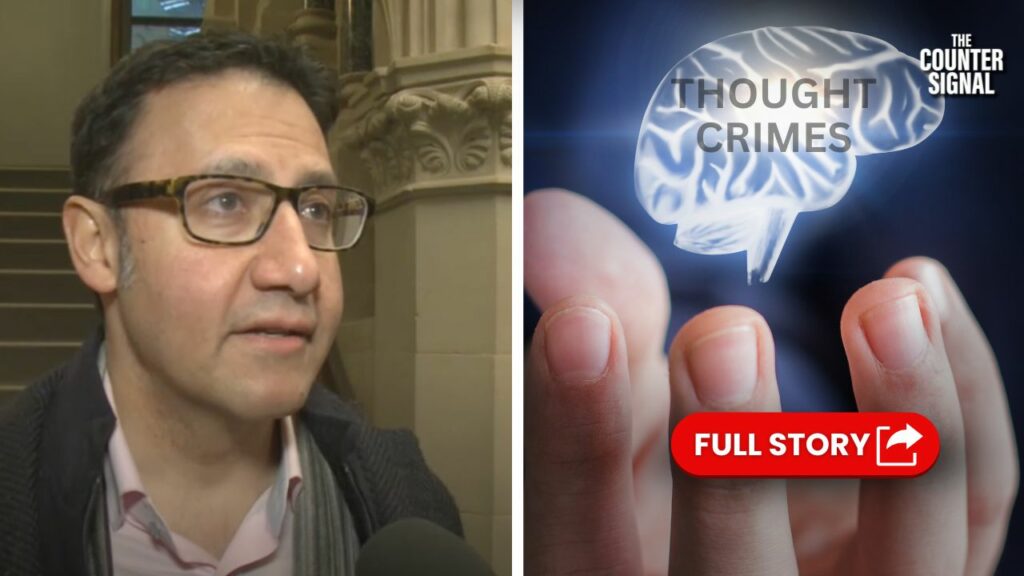Liberal Justice Minister Arif Virani defended his latest proposed censorship bill – dubbed the Online Harms Bill – including the part that allows for individuals to be put under house arrest for hate speech they might utter.

Introduced on Monday, Bill C-63 seeks to expand the definition of “hate” and increase punishments towards those who speak it.
One component of the bill reflects the 2002 movie Minority Report, calling for citizens to be placed under house arrest if “a person fears on reasonable grounds that another person will commit an offense.”
Predictive crime and detention or incarceration for your predictive crime is coming to Canada. Predictive crime is when it can be predicted that a person may commit an offence, not that the act took place. https://t.co/D0adPI1QlI
— Christine Duhaime (@cduhaime) February 28, 2024
Responding to the backlash, Virani doubled down on the bill, saying if “there’s a genuine fear of an escalation [of a hate crime], then an individual or group could come forward and seek a peace bond against them and to prevent them from doing certain things.”
The bill states that an individual found guilty of possibly committing hate speech could be punished by a judge with a house arrest sentence, or forced to wear an electronic tag.
Potential offenses include someone who might “promote genocide,” and someone who might “incite hatred against any identifiable group.”
This is INSANE!!!
— Rachael Thomas (@RachaelThomasMP) February 29, 2024
The Liberals want to punish people for a crime they *MIGHT* commit! pic.twitter.com/9eaXbZZFJO
Virani acknowledged those with concerns over how the Online Harms Bill could limit their freedom of expression, but said that the increased power it provides would be a “very, very important” tool.
“There’s a lot of bad stuff out there. But this is not about the bad stuff. This is a much higher level,” he assured.
Conservative MP Rachel Thomas has called the bill “insane,” claiming “The Liberals want to punish people for a crime they *MIGHT* commit!”
The Liberals ironically framed their bill by claiming it would somehow increase free speech.
Bill punishes citizens who “foment hate”
In actuality, the bill would increase penalties for hateful speech “not more than $20,000 to any victim identified in the communication that constituted the discriminatory practice,” and, further, “an order to pay a penalty of not more than $50,000 to the Receiver General, if the member or panel considers it appropriate…”
One of the most ambiguous forms of hate, according to the bill, is anything that “foments hate” towards protected classes. This category is defined as speech that “vilifies” or expresses “detestation” towards an individual or group that’s protected under the Canadian Human Rights Act.
The devil is in the details, of course. Just exactly what speech – or criticism – constitutes “vilification”?









